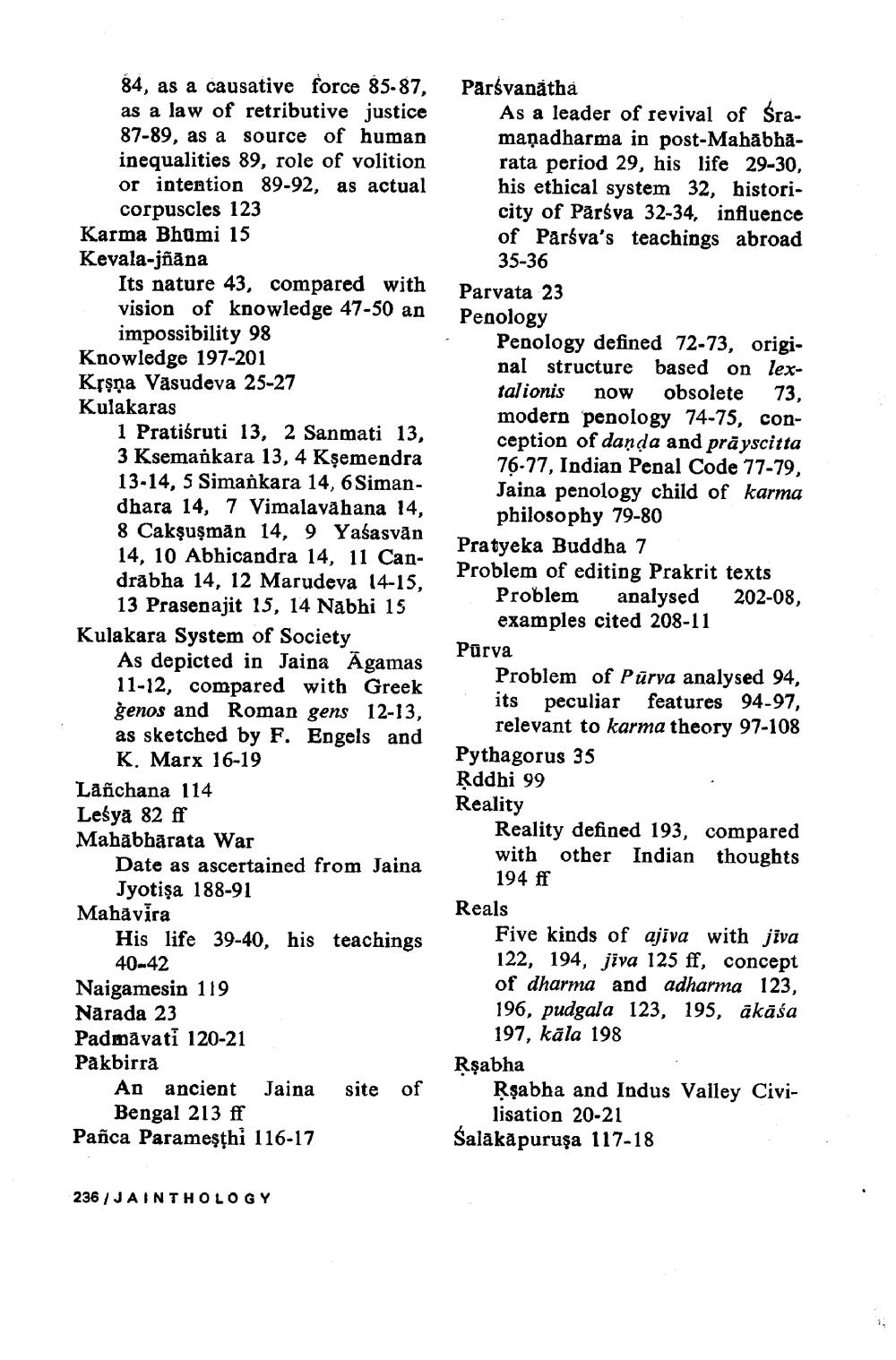________________
84, as a causative force 85-87, Parsvanatha as a law of retributive justice As a leader of revival of Sra87-89, as a source of human maņadharma in post-Mahābhāinequalities 89, role of volition rata period 29, his life 29-30, or intention 89-92, as actual his ethical system 32, historicorpuscles 123
city of Pārsva 32-34, influence Karma Bhumi 15
of Parsva's teachings abroad Kevala-jñāna
35-36 Its nature 43, compared with Parvata 23 vision of knowledge 47-50 anPenology impossibility 98
Penology defined 72-73, origiKnowledge 197-201
nal structure based on lexKrsna Vasudeva 25-27
talionis now obsolete 73, Kulakaras
modern penology 74-75, con1 Pratisruti 13, 2 Sanmati 13,
ception of danda and präyscitta 3 Ksemankara 13, 4 Kşemendra
76-77, Indian Penal Code 77-79, 13-14, 5 Simankara 14, 6 Siman
Jaina penology child of karma dhara 14, 7 Vimalavāhana 14,
philosophy 79-80 8 Cakşuşmān 14, 9 Yaśasvān
Pratyeka Buddha 7 14, 10 Abhicandra 14, 11 Can
Problem of editing Prakrit texts drābha 14, 12 Marudeva 14-15, 13 Prasenajit 15, 14 Nabhi 15
Problem analysed 202-08,
examples cited 208-11 Kulakara System of Society
Purva As depicted in Jaina Āgamas
Problem of Pūrva analysed 94, 11-12, compared with Greek ģenos and Roman gens 12-13,
its peculiar features 94-97,
relevant to karma theory 97-108 as sketched by F. Engels and K. Marx 16-19
Pythagorus 35
Rddhi 99 Lanchana 114
Reality Leśyā 82 ff
Reality defined 193, compared Mahabharata War
with other Indian thoughts Date as ascertained from Jaina
194 ff Jyotişa 188-91 Mahavira
Reals His life 39-40, his teachings
Five kinds of ajiva with jiva 40-42
122, 194, jīva 125 ff, concept Naigamesin 119
of dharma and adharma 123, Närada 23
196, pudgala 123, 195, akāśa Padmavati 120-21
197, kāla 198 Pakbirra
Rşabha An ancient Jaina site of Rşabha and Indus Valley CiviBengal 213 ff
lisation 20-21 Pañca Parameşthi 116-17
Śalakāpuruşa 117-18
236/JAINTHOLOGY




